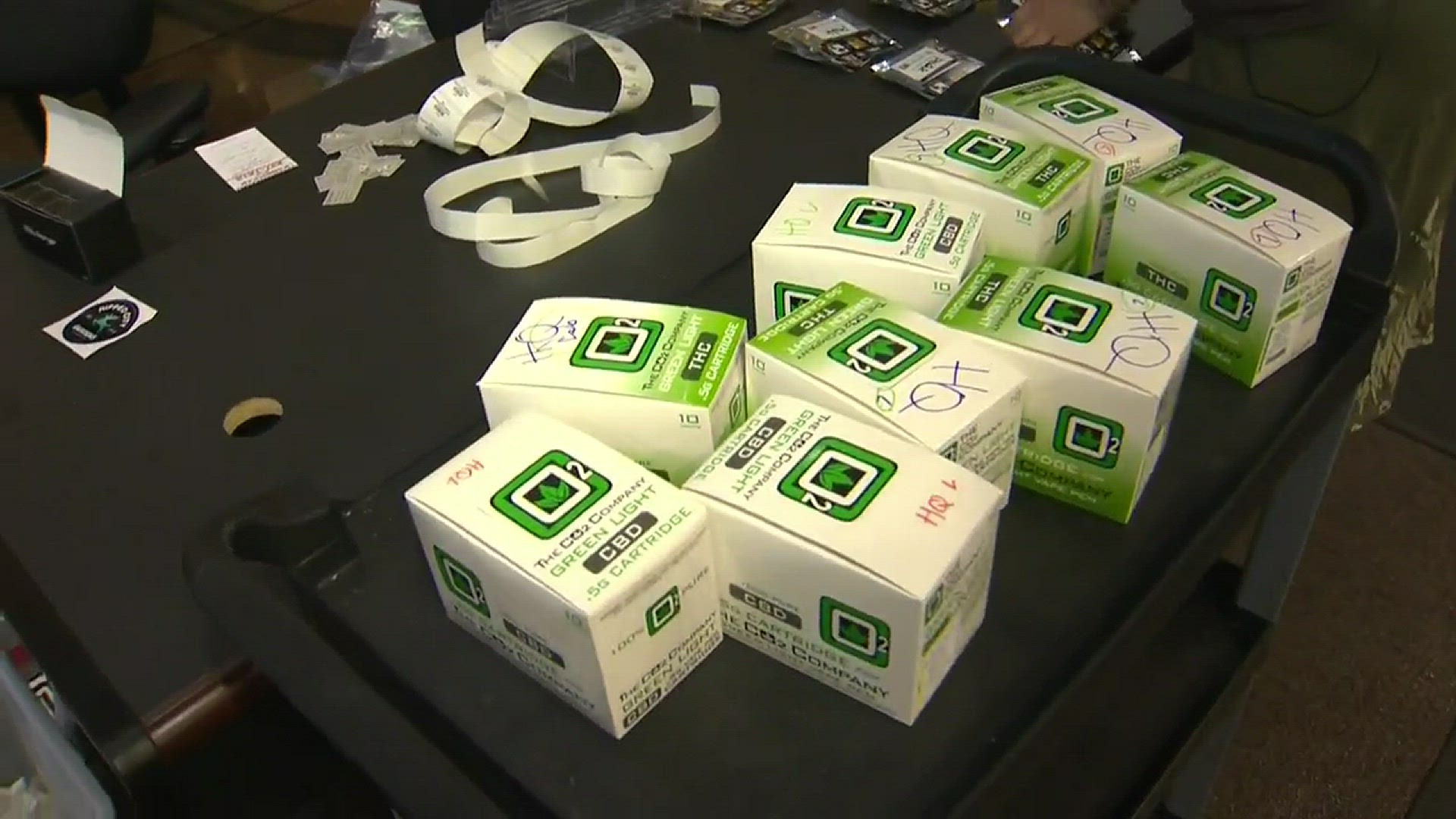PORTLAND, Ore. -- Brownies, cookies, soft drinks - all infused with cannabis - are for sale legally in Oregon for anyone over 21 years old.
It's been a long wait for dispensaries, which sped up three weeks ago when Governor Brown declared edibles would go on sale starting June 2. There are 426 approved dispensaries in Oregon that can now sell the products.
At Oregon's Finest dispensary in Northeast Portland, employees raced the clock to get inventory unboxed and into their computer system in time for the first sale.
"One of the big things we'll do tomorrow is remind people 'slow and low, that is the tempo,' like the Beastie Boys said," said co-owner Megan Marcheetti with a laugh. "You can always eat a little bit more of that caramel, but you can't take it out of your system."
Pot edibles side by side w/ their non-pot counterparts. Can you tell the difference? More importantly, can a kid? pic.twitter.com/6yMiZnHZhx
— Maggie Vespa KGW (@Maggie_Vespa) June 2, 2016
Edible cannabis products take about an hour to fully kick in.
The high effect lasts up to 10 hours, and it can feel much stronger than smoking. It is virtually impossible to die of an overdose on cannabis, but the effects of eating too much can be uncomfortable or scary.
That's part of the reason that Oregon's temporary rules for edibles are that customers can only buy 15 milligrams of edible THC per day, which is about one dose. That's different than Colorado and Washington, which allow customers to buy multiple doses per day.
The possibilities and flavors of products are extensive. Marcheetti will have taffy candies, flavored drinks, organic honey sticks infused with cannabis, chocolate squares, and cake bites.
Consumers can also buy cannabis extracts containing up to 1,000 mg of THC, and cannabis-infused topical products with a maximum of 6 percent THC.
For some, it's the attraction of being discreet, clean, no smell, no coughing, but we've all heard that story about eating too much.
"Next thing you know, you're feeling it just like if you were to smoke a joint, but then it just completely takes off," explained customer Armando Ayala. "Your perception goes away, you think you're in a big mansion and you start panicking a little bit, and it's a bad situation. Just take it slow and be safe."
"High, dizzy, can't walk straight, simple things like that," Dr. Robert Hendrickson describes the symptoms he hears most often.
Dr. Hendrickson runs the Oregon Poison Center at Oregon Health and Science University. He says marijuana-related calls have been steadily rising since 2014, on track this year to hit 300 calls, double the previous amount. In 2014, there were 99 calls. In 2015, that number went up to 157.
But he says if you put it in perspective of their 50,000 calls a year, marijuana makes up less than 1 percent of the calls they get.
Kids, however, can have a severe reaction.
"Those children have become comatose, have abnormal movements, we've even had those children put on mechanical ventilators and go to an ICU," he said. "If a child is exposed to any cannabis product, we want you to call. The answer may be it's just fine, but the answer may be that the dose is very, very high."
PeaceHealth Southwest Medical Center in Vancouver tells KGW they've had zero patients come in from a pot overdose since edibles became legal in Washington.
Dr. Hendrickson says people can overdose on pot, and it's easier to do with edibles. There's nothing you can really do except wait.
"For the most part, we would advise people, depending on the dose and scenario, to stay home," Hendrickson said. "We would call them back and check on them to make sure they're okay."
Officials urge people to keep cannabis products away from kids and pets by storing it in a locked area.
Anyone concerned about a possible overdose should call the Oregon Poison Center at 1-800-222-1222. If symptoms are severe in children, including trouble walking or sitting up, or having difficulty breathing, call 911 or go to the emergency room.

